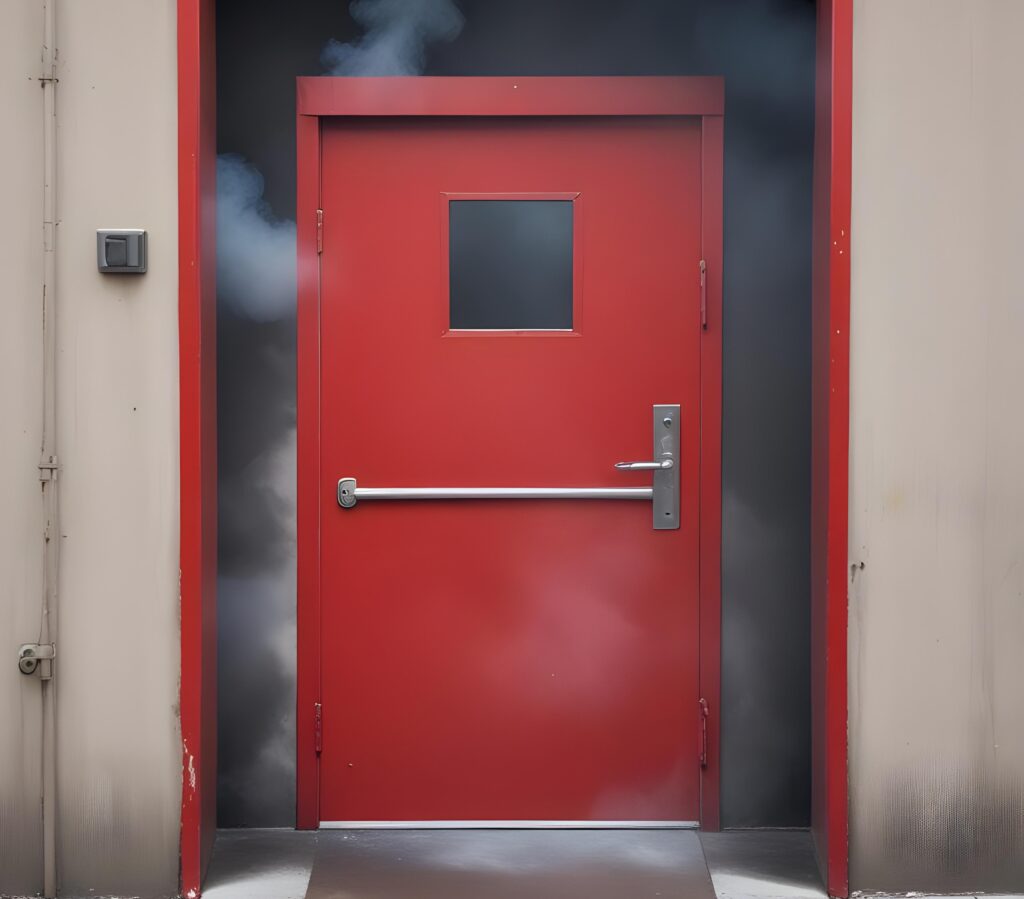Beyond the Door: What Makes a Door Truly Fire-Rated?
March 12, 2025

When it comes to fire safety in commercial spaces, a door isn’t just a door — it’s a critical line of defense. But what truly makes a door fire-rated? Let’s explore the essential features that separate ordinary doors from life-saving fire barriers.
What Is a Fire-Rated Door?
A fire-rated door is designed to withstand fire and prevent the spread of flames and smoke for a specific time period — typically 20, 60, 90, or 120 minutes. These doors are rigorously tested and certified to ensure they maintain structural integrity under extreme heat.
Key Features of Fire-Rated Doors
- Special Core Materials: Fire-rated doors are built with cores made of steel, gypsum, or special composite materials that resist high temperatures.
- Certified Frames and Hardware: Hinges, locks, and frames must also meet fire-resistance standards.
- Smoke Seals: Integrated seals expand under heat, blocking smoke and toxic gases from passing through.
- Self-Closing Mechanisms: Fire doors are fitted with automatic closers to ensure they are never accidentally left open.
- Glazing with Fire-Rated Glass: If a window is present, it uses special glass that can endure intense heat without shattering.
Why Fire-Rated Doors Matter
Fire-rated doors are not just regulatory requirements; they are crucial for:
- Allowing Safe Evacuation: Slowing down the spread of fire and smoke gives occupants more time to exit safely.
- Protecting Property and Assets: Minimizing fire damage by compartmentalizing spaces.
- Ensuring Code Compliance: Meeting national and local fire safety codes is mandatory for commercial and public buildings.
Applications of Fire-Rated Doors
- Office buildings and commercial spaces
- Hospitals and healthcare facilities
- Educational institutions
- Hotels and high-rise residential buildings
- Warehouses and industrial facilities
Conclusion: Investing in Safety
In an emergency, a properly installed and maintained fire-rated door can mean the difference between containment and catastrophe. They are a vital part of any building’s fire protection strategy — ensuring not just compliance, but more importantly, saving lives.

Quick links
Products Categories
Follow us
Copyright 2025 © Window Techs. All Rights Reserved.